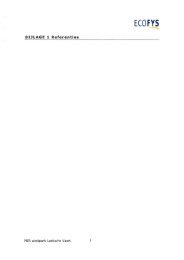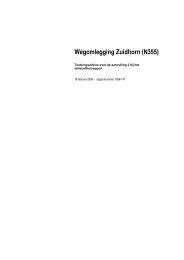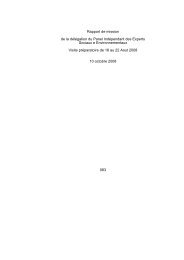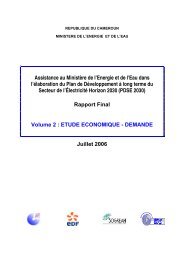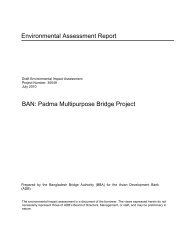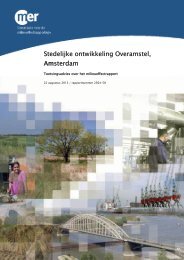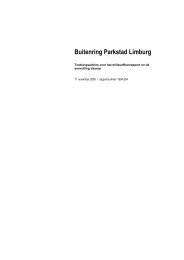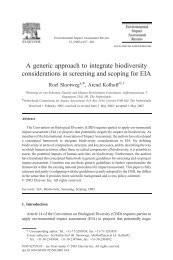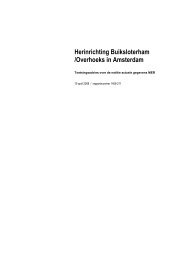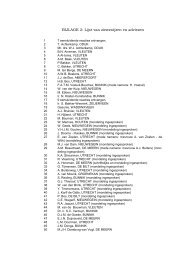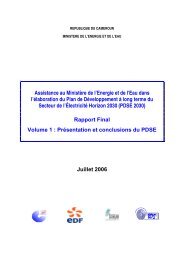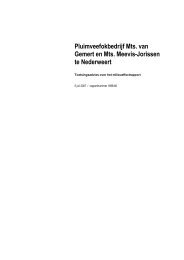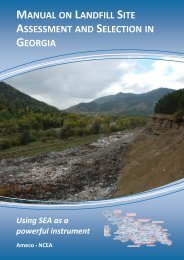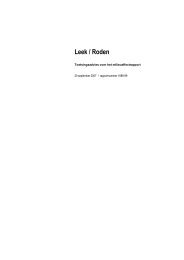Scoping Advice for the Dutch IWRM Support Programme Rwanda
Scoping Advice for the Dutch IWRM Support Programme Rwanda
Scoping Advice for the Dutch IWRM Support Programme Rwanda
You also want an ePaper? Increase the reach of your titles
YUMPU automatically turns print PDFs into web optimized ePapers that Google loves.
During <strong>the</strong> Kigali workshop, it became evident that <strong>the</strong> need <strong>for</strong> <strong>IWRM</strong> as <strong>the</strong> approach <strong>for</strong> watermanagement in <strong>Rwanda</strong> is broadly acknowledged by a variety of government and non-governmentstakeholders, from within and outside <strong>the</strong> water sector. This is timely, as <strong>for</strong> <strong>the</strong> time being<strong>Rwanda</strong> only faces localised water-related problems. Given <strong>the</strong> rapid pace of economicdevelopment and <strong>the</strong> high rate of population growth, water demands <strong>for</strong> food security, publicwater supply, energy production, among o<strong>the</strong>rs, are and will be increasing. By acknowledging thisat an early stage, <strong>Rwanda</strong> has time to pro-actively start managing equitable access to water <strong>for</strong> alldifferent users.2. The NCEA observes that <strong>Rwanda</strong> has not only made swift steps, but has also timely recognised<strong>the</strong> need <strong>for</strong> <strong>IWRM</strong> to anticipate possible future conflicting water demands. <strong>IWRM</strong> is alreadyrelatively well established in legal and policy documents. In <strong>the</strong> coming period focus ought to beon making <strong>IWRM</strong> fur<strong>the</strong>r operational if <strong>the</strong> GoR wants to make effective use of this momentum.2.2 Risks related to <strong>the</strong> <strong>IWRM</strong> implementation processDocument study but especially discussions with RWRD and with consultants at SHER and RIWSPalso highlighted some risks associated with <strong>the</strong> present <strong>IWRM</strong> operationalisation process:- The RWRD is a young department: it exists since 2010, while it was only recently staffed withyoung professionals with limited operational experience;- The elements that constitute an <strong>IWRM</strong> approach are mostly developed by hired consultants inrelatively isolated teams;- Staff of <strong>the</strong> RWRD, but also o<strong>the</strong>r departments, have only limited involvement in this process.Consequently, <strong>the</strong>re is limited transfer of knowledge and skills, thus producing littleownership of <strong>the</strong> end products (including <strong>for</strong> example <strong>the</strong> MIS);- The high pressure to achieve targets within short periods of time may hamper effectivelearning and feedback to adjust and improve both policy and practice <strong>for</strong> <strong>IWRM</strong>;- Key sectors are invited in <strong>the</strong> process, especially at national level, but <strong>the</strong> pace ofdevelopment also here leads to limited ownership of <strong>IWRM</strong> among relevant sectors. It isquestioned whe<strong>the</strong>r all sectors are aware of and understand <strong>the</strong>ir legal roles andresponsibilities within <strong>IWRM</strong>;- Very little of <strong>the</strong> <strong>IWRM</strong> policy and institutional framework is operational yet, or is so far visiblyimplemented at catchment level. Commitment and ownership thus still have to be developedamong (local) stakeholders such as districts authorities and o<strong>the</strong>rs.- The NCEA sees a risk of ambitious policy makers running too far ahead of actual fieldimplementation, possibly ignoring <strong>the</strong> fact that acceptation and implementation of <strong>IWRM</strong>takes time.3. The NCEA concludes that <strong>the</strong>re is a risk that <strong>IWRM</strong> practice does not develop at <strong>the</strong> same paceas <strong>the</strong> policy framework. Learning and transfer of knowledge and skills require more time andattention if capacity is to be built. In order <strong>for</strong> <strong>IWRM</strong> to become operational, a sense of ownershipwill need to be shared by <strong>the</strong> different actors, both at national and decentral levels. Theseprocesses need time, while currently pressure is at achieving targets.8



